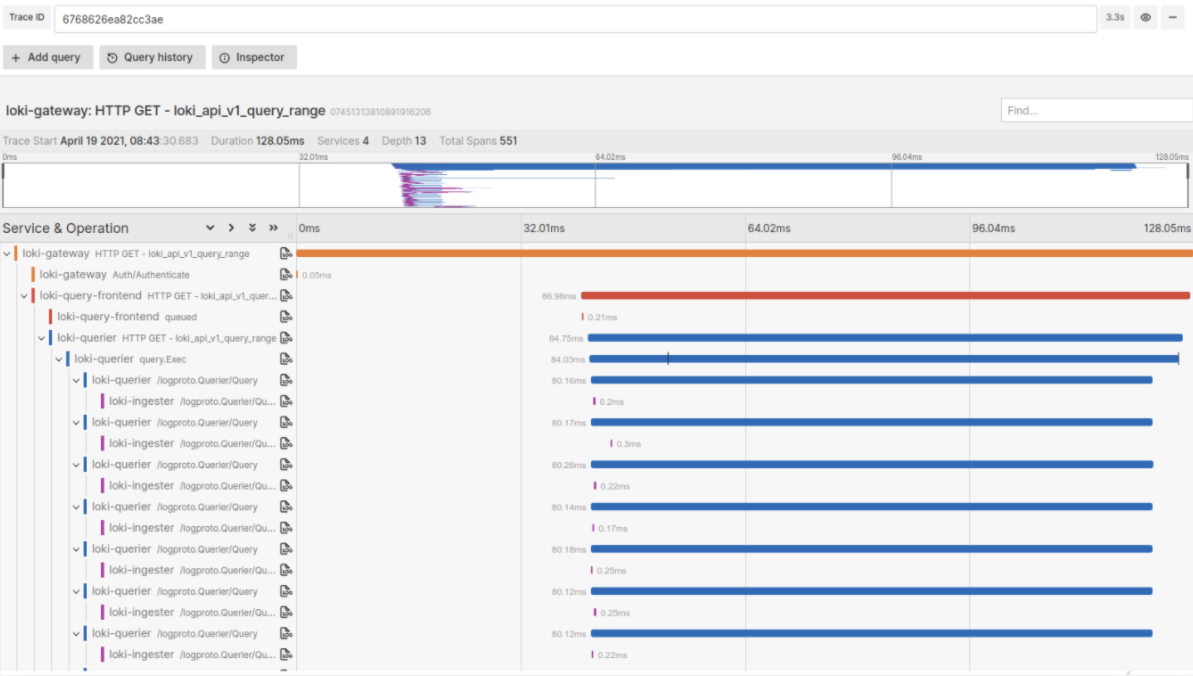 CLOUD
CLOUD
 CLOUD
CLOUD
 CLOUD
CLOUD
Grafana Labs Inc. announced two new product releases, Tempo 1.0 and Grafana 8.0, at a virtual user event today, aiming to provide companies with better visibility into the health of their technology infrastructure.
New York-based Grafana Labs is the startup behind a popular open-source monitoring platform of the same name. The software is one of the most widely used in the industry, with more than 600,000 deployments worldwide, including at organizations such as Intel Corp. and Fermilab. More than 1,000 companies pay Grafana Labs for a commercial version of the platform that includes additional features.
Tempo 1.0 is the first round-number release of a tracing tool that Grafana Labs first introduced for its platform last year. Tracing is a process whereby developers track how a request passes through an application’s subcomponents to identify potential errors. A request can be an order placed in an e-commerce service, for example. Tracing allows developers to collect troubleshooting data as the order travels from the e-commerce storefront to the back-end payment processing system and the company’s sales database.

Tempo promises to make the tracing workflow more efficient. Normally, tracing tools don’t collect all the troubleshooting data generated as a request travels through the application but only a subset of the information, which means developers often don’t have a complete view of issues.
Collecting all the data is possible, but it requires setting up a system such as Elasticsearch or Cassandra to manage the gathered information, which creates additional complexity. Grafana Labs says Tempo makes it possible to collect large amounts of troubleshooting data without the overhead of maintaining an Elasticsearch or Cassandra deployment.
Tempo, like Grafana Labs’ core monitoring platform, is available under an open-source license.
The Grafana platform works by querying systems for data about their status and then turning the data into visual dashboards that administrators can use to view infrastructure health at a glance. Grafana 8.0, the new release announced today, can cache the results of common queries and reuse them in the future, which the startup says has multiple benefits.
First, the feature speeds up performance because the results are available on hand in the cache and don’t need to be fetched from the source system every time they’re needed. In practice, this means that monitoring dashboards can load faster. The cache also reduces costs because sending queries over the network and transferring the requested data incurs bandwidth fees, which means reducing the number of operations lowers expenses.
“More than 740,000 people are actively using the Grafana platform to monitor and visualize everything from their personal smart home devices to crucial business application data, and the project maintainers have been hard at work over the past year to develop new features that make the platform more scalable and easier to use,” said Grafana Labs co-founder Torkel Ödegaard, who created the open-source Grafana platform.
Other enhancements in Grafana 8.0 include improved access controls and a new alerting dashboard. The former feature will make it easier for companies to regulate employee access to infrastructure health data. The latter addition will enable administrators to view all the incident alerts that Grafana generates in one place instead of having to consult multiple separate dashboards.

The product updates come less than a year after Grafana Labs nabbed a $50 million funding round led by Lightspeed Venture Partners. At the same time, the startup told SiliconANGLE that revenues had doubled over the preceding year, though it didn’t share specific numbers.
Support our mission to keep content open and free by engaging with theCUBE community. Join theCUBE’s Alumni Trust Network, where technology leaders connect, share intelligence and create opportunities.
Founded by tech visionaries John Furrier and Dave Vellante, SiliconANGLE Media has built a dynamic ecosystem of industry-leading digital media brands that reach 15+ million elite tech professionals. Our new proprietary theCUBE AI Video Cloud is breaking ground in audience interaction, leveraging theCUBEai.com neural network to help technology companies make data-driven decisions and stay at the forefront of industry conversations.